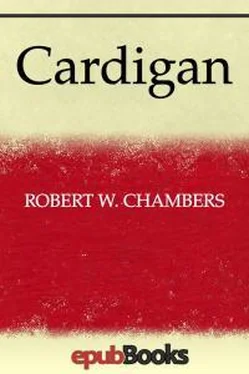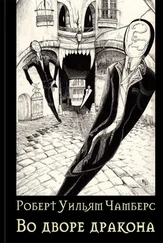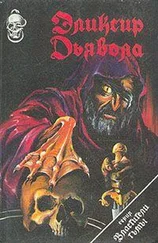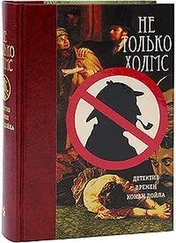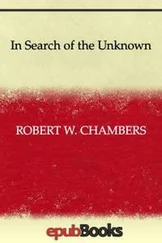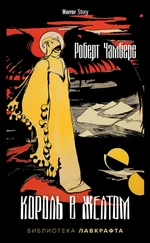Роберт Чамберс - Cardigan
Здесь есть возможность читать онлайн «Роберт Чамберс - Cardigan» весь текст электронной книги совершенно бесплатно (целиком полную версию без сокращений). В некоторых случаях можно слушать аудио, скачать через торрент в формате fb2 и присутствует краткое содержание. Год выпуска: 2014, Издательство: epubBooks Classics, Жанр: Историческая проза, на английском языке. Описание произведения, (предисловие) а так же отзывы посетителей доступны на портале библиотеки ЛибКат.
- Название:Cardigan
- Автор:
- Издательство:epubBooks Classics
- Жанр:
- Год:2014
- ISBN:нет данных
- Рейтинг книги:3 / 5. Голосов: 1
-
Избранное:Добавить в избранное
- Отзывы:
-
Ваша оценка:
- 60
- 1
- 2
- 3
- 4
- 5
Cardigan: краткое содержание, описание и аннотация
Предлагаем к чтению аннотацию, описание, краткое содержание или предисловие (зависит от того, что написал сам автор книги «Cardigan»). Если вы не нашли необходимую информацию о книге — напишите в комментариях, мы постараемся отыскать её.
Cardigan — читать онлайн бесплатно полную книгу (весь текст) целиком
Ниже представлен текст книги, разбитый по страницам. Система сохранения места последней прочитанной страницы, позволяет с удобством читать онлайн бесплатно книгу «Cardigan», без необходимости каждый раз заново искать на чём Вы остановились. Поставьте закладку, и сможете в любой момент перейти на страницу, на которой закончили чтение.
Интервал:
Закладка:
"But should He in His wisdom demand that I choose—and if the sorrow kills me not—then, when the time comes, I shall choose."
"Which way, sir?" I said, in a sort of gasp.
But he only answered, "Wait!"
Stupefied, I watched him. It had never entered my head that there could be any course save unquestioned loyalty to the King in all things; that there could be any doubt or hesitation or pondering or praying for light when it came time to choose between King and rebel.
I now recalled what Sir William had said to me in the school–room. Putting this with what he now said, or left unsaid, together with his anger at Colonel Cresap for endangering the peace betwixt the Indians and the colonies, I came to the frightened conclusion that Sir William's loyalty might be questioned. But by whom? Who in America was great enough to call Sir William to account? Not Governor Tryon; not Lord Dunmore; not General Gage.
Feeling as though the bottom had fallen out of something, I sat there, my fascinated eyes never leaving Sir William's sombre face.
What then were these tea–hating rebels that Sir William should defend them at breakfast and in the faces of half a dozen of his Majesty's officers? I knew nothing of the troubles in Massachusetts save from soldiers' talk or the gossip of the townsmen, most of them being tenants of Sir William. I had heard vaguely about one turbulent fellow named Hancock, and a mischief–making jack–at–all–trades called Franklin. I knew that the trouble concerned taxes, but as all this bother appeared to be about a few pennies, and as I myself never wanted for money, I had little sympathy for people who made such an ado about a shilling or two. Moreover, if the King needed money, the idea of not placing one's all at his Majesty's disposal seemed contemptible to me. It is true that I had never earned a farthing in all my life, and so had nothing to offer my sovereign, save what fortune my father had left in trust for me. It is also true that I knew nothing of the value of money, having neither earned it nor wanted for it.
Something of these thoughts may have been easily read in my face, for Sir William said, with some abruptness:
"It is not money; it is principle that men fight for."
I was startled, although Sir William sometimes had a way of rounding out my groping thoughts with sudden spoken words which made me fear him.
"Well, well," he said, laughing and rising to stretch his cramped limbs; "this is enough for one day, Michael. Let the morrow fret for itself, lad. Come, smile a bit! Shall we have a holiday, perhaps the last for many a month? Nay, do not look so sober, Micky. Who knows what will come? Who knows; who knows?"
"I shall stand by you, sir, whatever comes," said I.
But Sir William only smiled, drawing me to him, one arm about me.
"Suppose," said he, "that you and I and Mr. Duncan and Felicity and Peter and Esk take rods and bait and go a–fishing in the Kennyetto by Fonda's Bush!"
"A peg–down fishing match!" cried I, enchanted.
"Ay, a peg–down match, and the prize whatever the victor wills—in reason. What say you, Michael?"
I was about to assent with enthusiasm when something occurred to me and I stopped.
"May I wear my uniform, sir?" I asked.
"Gad!" cried Sir William, in a fit of laughter. "'Tis a bolder man than I who dare separate you from your uniform!"
"Then I'll carry my pistols and go a–horse!" said I, delighted.
The Baronet, hands clasped behind him, nodded absently. That old gray colour came into his face again, and he lifted a belt from the table and studied it dreamily, picking at the wampum which glowed like a snake's skin in the sunshine.
Chapter V
To Fonda's Bush it is a good ten miles. I rode Sir William's great horse, Warlock, who plunged and danced at the slap of my sword–scabbard on his flanks, and wellnigh shook me from my boots.
"Spare spur, lad! Let him sniff the pistols!" called Sir William, standing up in the broad hay–wagon to observe me. "He will quiet when he smells the priming, Michael."
I drew one of my pistols from the holster and allowed Warlock to sniff it, which he did, arching his neck and pricking forward two wise ears. After this the horse and I understood each other, he being satisfied that it was a real officer he bore and no lout pranked out to shame him before other horses.
The broad flat hay–wagon, well bedded and deep in rye–straw, was filled with the company on fishing bent; Peter and Esk already disputing over their lines, red quills, and bob–floats; Silver Heels, in flowered cotton damask and hair rolled up under a small hat of straw, always observing me with lowered, uncertain eyes; Mr. Duncan, in fustian coat and leggings, counting out fish–hooks; Sir William, in yellow–and–brown buckskin and scarlet–flowered waistcoat, singing lustily:
"A–Maying!
A–Maying!
Oh, the blackthorn and the broom
And the primrose are in bloom!"
Behind the wagon, with punch–jugs swinging on his saddle–bags, like John Gilpin rode young Bareshanks the Scot, all a–grin; while upon either side of the wagon two mounted soldiers trotted, rifles slung and hangers sheathed.
Thus we set out for Fonda's Bush, which is a vast woods, cut into a hundred arabesques by the Kennyetto, a stream well named, for in the Indian language it means "Snake–with–its–tail–in–its–mouth," and, although it flows for forty miles, the source of it is scarce half a mile from the mouth, where it empties into the great Vlaie near to Sir William's hunting–lodge.
In the wagon Sir William turned to the windows and waved his hat at Mistress Molly, who stood behind the nursery curtains and kissed her fingers to him. And, as the wagon with its escort rolled off with slow wheels creaking, Mr. Duncan struck up:
"Who hunts, doth oft in danger ride;
Who hawks, lures oft both far and wide;
Who uses games, may often prove
A loser; but who falls in love,
Is fettered in fond Cupid's snare;
My angle breeds me no such care."
And Sir William and Mr. Duncan ended the song:
"The first men that our Saviour dear
Did choose to wait upon him here,
Blest Fishers were,—"
The shrill voices of Esk and Peter joined in, then were hushed as Silver Heels's dainty song grew from the silence like a fresh breeze:
"For Courts are full of flattery
As hath too oft been tried;
The City full of wantonness,
And both be full of Pride:
Then care away,
And wend along with me!"
So singing on their rye–straw couches, the swaying wagon bore them over the hilly road, now up, now rattling down–hill among the stones to ford some ice–clear brook, and away again across the rolling country, followed by Gillie Bareshanks, stone bottles flopping, and the trotting soldiers holding their three–cornered hats on with one hand, bridle–rein in t'other.
I galloped ahead, pistol poised, frowning at woodlands where I pretended to myself danger might hide, examining all wayfarers with impartial severity; and I doubt not that, seeing me in full uniform and armed, my countenance filled them with misgivings; indeed, some called out to know if the news from Boston was bad, if the Indians meant mischief hereabouts, or if the highwayman, Jack Mount, was abroad.
"Plague on your pistols!" shouted Sir William, as I waited at a ford for the wagon. "Gad! Michael, your desperate deportment is scaring my tenants along the way! Smile as you gallop, in Heaven's name! else they'll take you for Jack Mount himself!"
Somewhat mortified by Sir William's roar of laughter, I trotted on in silence, returning my pistol to its holster, and buckling the flap.
Читать дальшеИнтервал:
Закладка:
Похожие книги на «Cardigan»
Представляем Вашему вниманию похожие книги на «Cardigan» списком для выбора. Мы отобрали схожую по названию и смыслу литературу в надежде предоставить читателям больше вариантов отыскать новые, интересные, ещё непрочитанные произведения.
Обсуждение, отзывы о книге «Cardigan» и просто собственные мнения читателей. Оставьте ваши комментарии, напишите, что Вы думаете о произведении, его смысле или главных героях. Укажите что конкретно понравилось, а что нет, и почему Вы так считаете.
